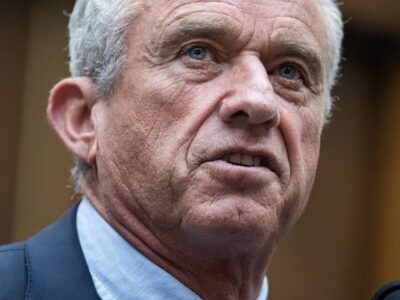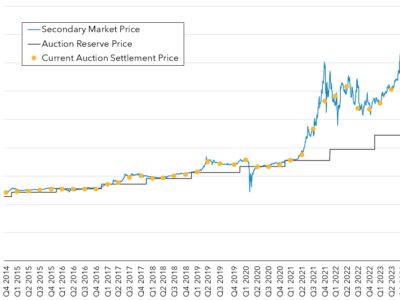The Economist on Natural Gas: Slouching Toward Mediocrity

I was quite interested in finding last week that The Economist’s most recent major survey is about natural gas. Given the explosion of natural gas resources (uh…so to speak) and the world’s growing reliance on it, I needed to get up to speed.
Besides, from a climate perspective, getting the fracking issue right is crucial. Natural gas combustion itself emits far less greenhouse gases than does coal. But natural gas itself is methane, a far more potent (although less long-lasting) greenhouse gas than carbon dioxide. And fracking does have the tendency to “leak” methane, meaning that what one gets in emissions reductions during combustion could be lost during the drilling process.
So of course the critical question is: how much leakage is there? And what technical or regulatory measures can be done to avoid such leakage? Here is what the Economist says:
Methane emissions are hard to measure; estimates vary between 1% and 8% of the total amount of gas produced. If the real figure proved to be near the top end of the range, it would challenge the fuel’s claim to relative cleanliness. A study from Cornell University last year calculated that from production to end-user some 7.9% of total shale-gas output finds its way into the atmosphere, up to twice as much as for conventional gas wells. If so, it would make shale gas dirtier than coal or oil. But the analysis has been heavily criticised. Research published by America’s Environmental Protection Agency (EPA) around the same time put the figure at 2.2%, only a little more than conventional gas. And methane emissions are probably falling because of “green completion”, a method used on most new wells that avoids venting or flaring methane. The EPA is now conducting the biggest study ever into all aspects of shale exploration, likely to be published next year, which might help allay public fears.
That’s it. That’s the whole coverage of methane leakage in what is supposed to be an in-depth look at natural gas production and marketing.
What in the world does that tell us? One study says one thing, another study says another, and there is another study coming that “might” allay such fears. Or it might not. Or whatever. Who knows.
Good journalism, which The Economist claims to produce, has to do more than just report “he said-she said.” What are the differences between the studies? What are their assumptions and data sources? How is an interested consumer supposed to know anything?
It actually gets worse than that. In the very next paragraph, it reports:
The European Commission, in a rare display of good sense, has concluded that no new laws are needed to cover shale gas beyond those already in pace for the extractive industries. The IEA says that if the industry wants to gain public acceptance there will have to be more disclosures, engagement with local communities, effective monitoring of wells, tough rules on well design, fracking and surface spills, careful water management and a stop on methane emissions.
WTF? The report lauds the European Commission for not imposing new rules, and then reports that the IEA says that in order to make fracking acceptable, it will require — more and tougher rules.
I ended my subscription to The Economist a few years ago when its American section started becoming a vehicle for right-wing agitprop. This survey isn’t that: it’s just sloppy work.
In my view, fracking is coming on a bigger scale than it is now. When there is that much money in the ground, people are going to figure out how to get at it. But that means that setting up the proper regulatory structure is necessary now. Wouldn’t it be nice if a journal that purports to be intelligent actually, you know, was?
Reader Comments
10 Replies to “The Economist on Natural Gas: Slouching Toward Mediocrity”
Comments are closed.








A very good analysis! Your concluding point, that now is the time to create regulatory frameworks, is bang on the money. One of the barriers to so doing, as I’m sure you’re aware is the absence of an effective inter-governmental policy-agreeing methodology at this point in time. Such a method would have to include democratic citizen involvement internationally as well, in order to be fair and not just a cut-the-pie party between top-dog nations and corporate interests. I’m always surprised that there isn’t more journalism about the need for this. I’d like to direct your attention to an idea called the Simultaneous Policy which addresses how we might get from here to there, without actually altering our present political processes. I hope you find it interesting and can see how it would be applicable to situations in which regulatory efforts are stymied by destructive competition, as is surely the case with fracking. http://www.simpol.org
A very good analysis! Your concluding point, that now is the time to create regulatory frameworks, is bang on the money. One of the barriers to so doing, as I’m sure you’re aware is the absence of an effective inter-governmental policy-agreeing methodology at this point in time. Such a method would have to include democratic citizen involvement internationally as well, in order to be fair and not just a cut-the-pie party between top-dog nations and corporate interests. I’m always surprised that there isn’t more journalism about the need for this. I’d like to direct your attention to an idea called the Simultaneous Policy which addresses how we might get from here to there, without actually altering our present political processes. I hope you find it interesting and can see how it would be applicable to situations in which regulatory efforts are stymied by destructive competition, as is surely the case with fracking. http://www.simpol.org
I did not know the Methane gas after-effect of fracking. This fracking release, matched with the methane release from arctic ice meltdown, should escalate weather pattern reactions.
I did not know the Methane gas after-effect of fracking. This fracking release, matched with the methane release from arctic ice meltdown, should escalate weather pattern reactions.
Reblogged this on Standard Climate.
Reblogged this on Standard Climate.